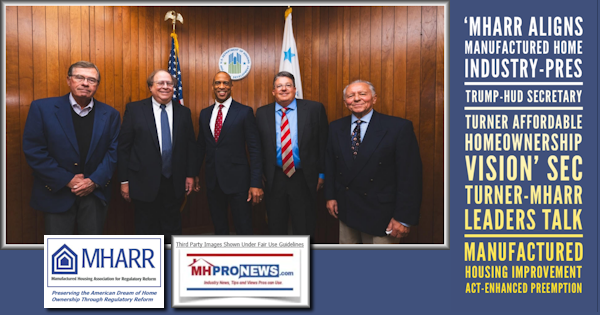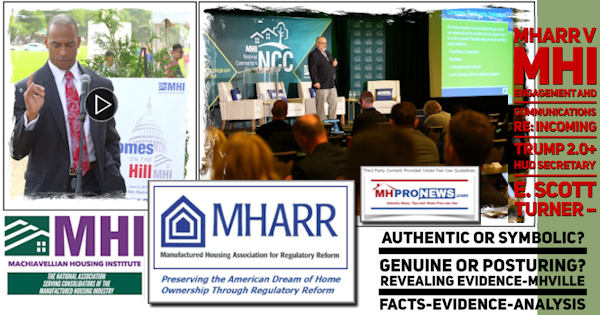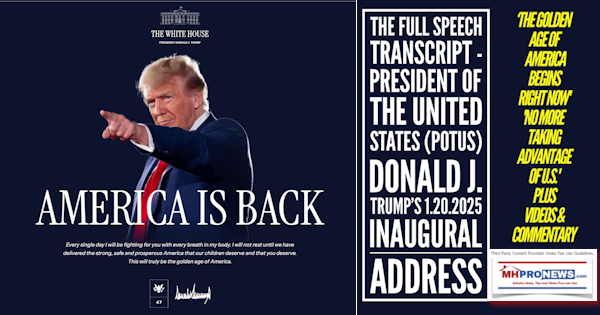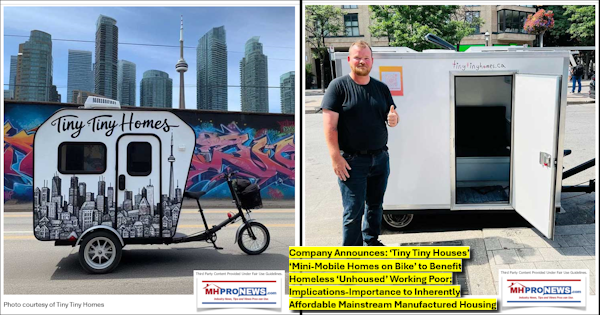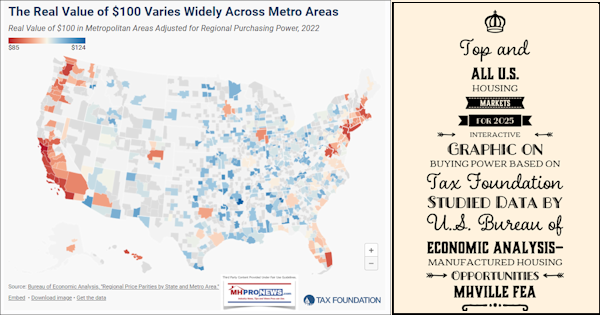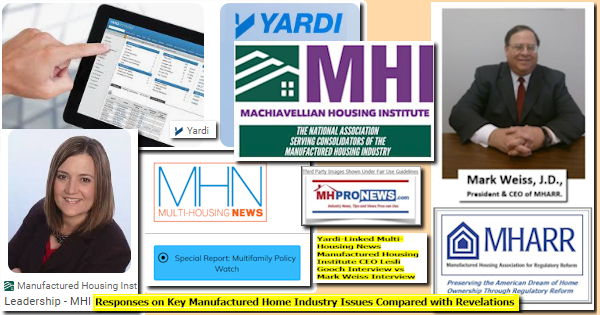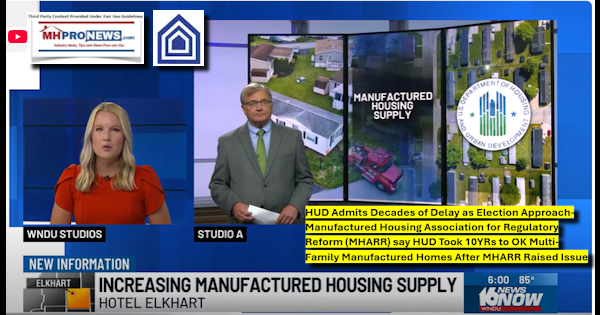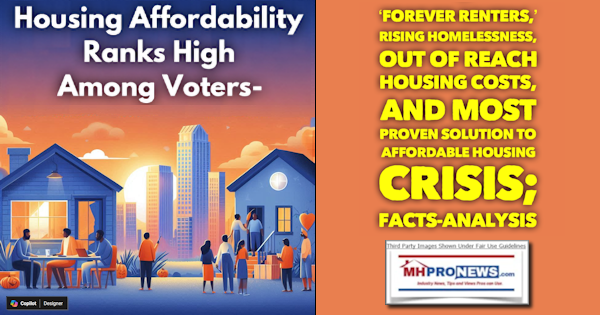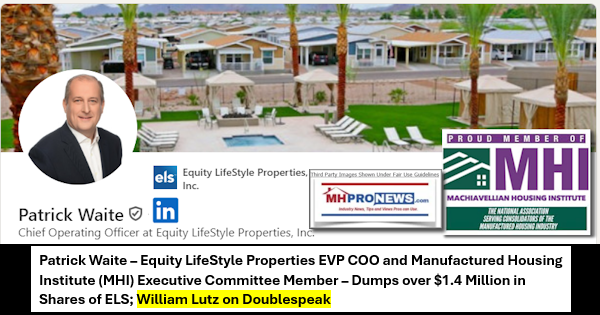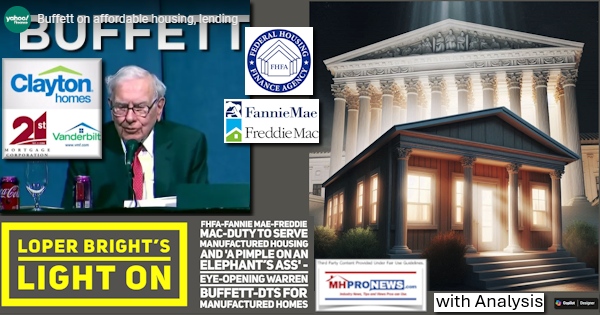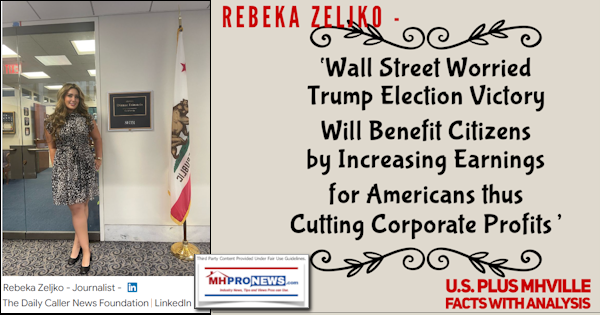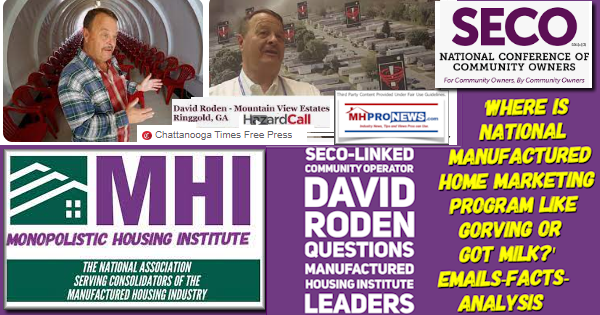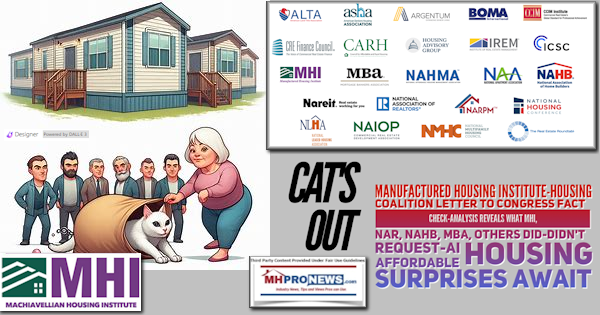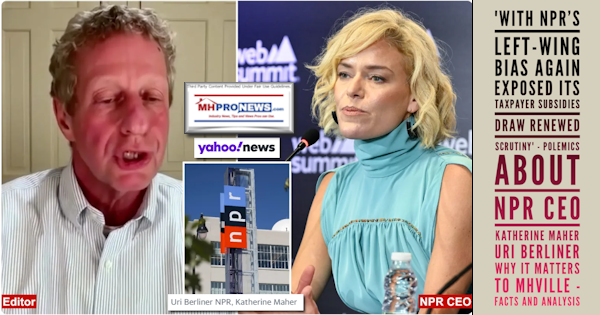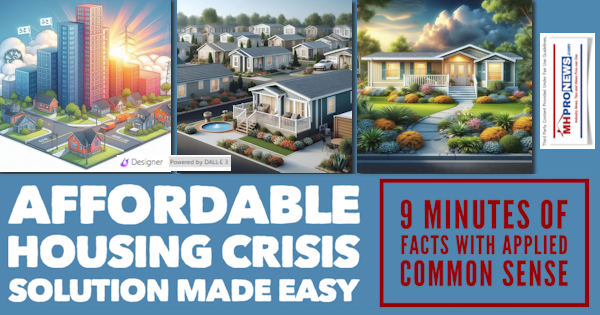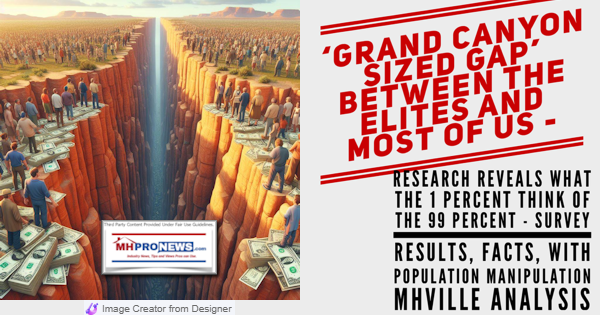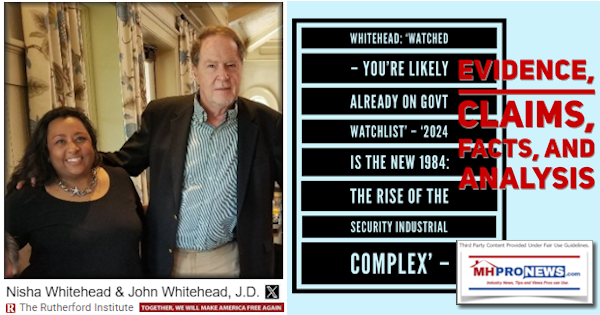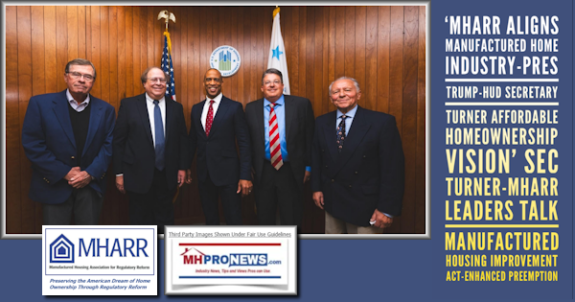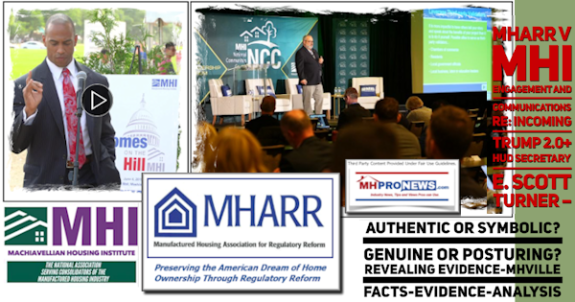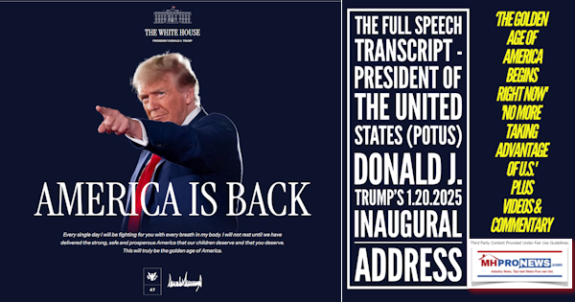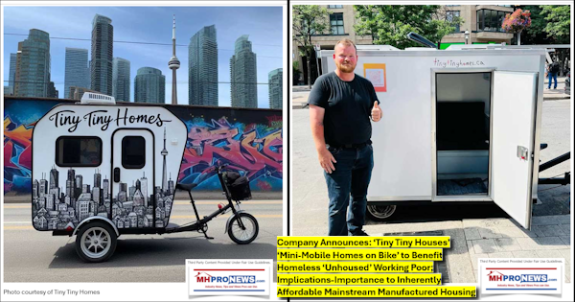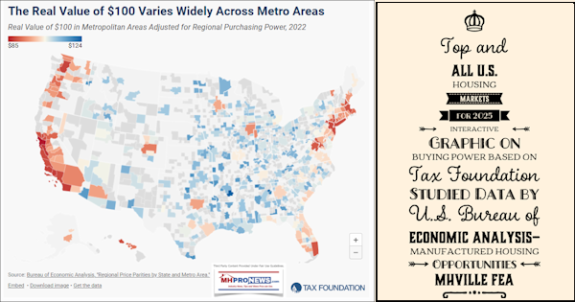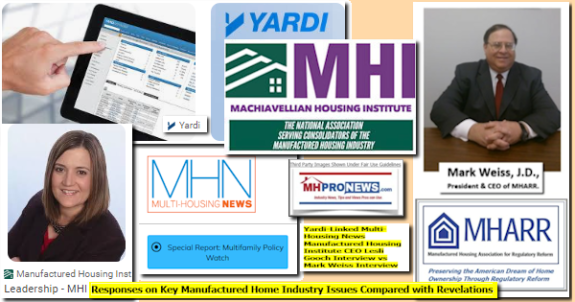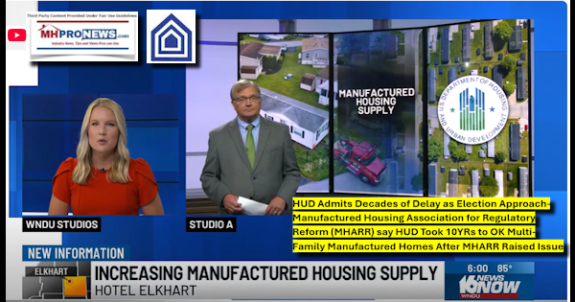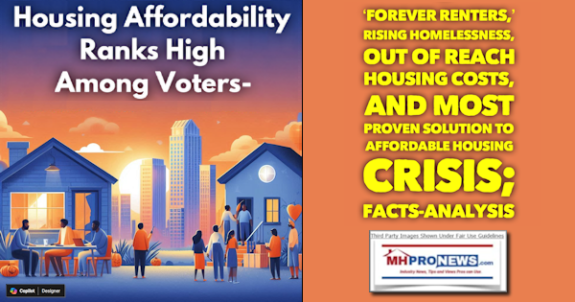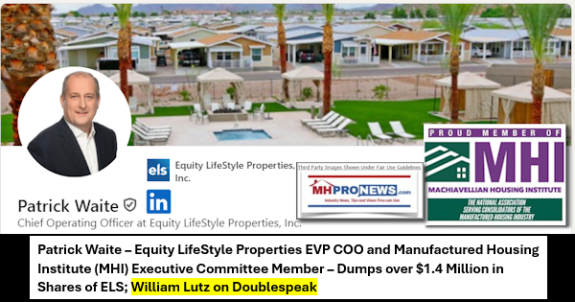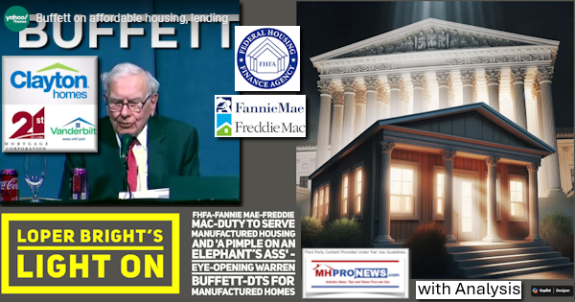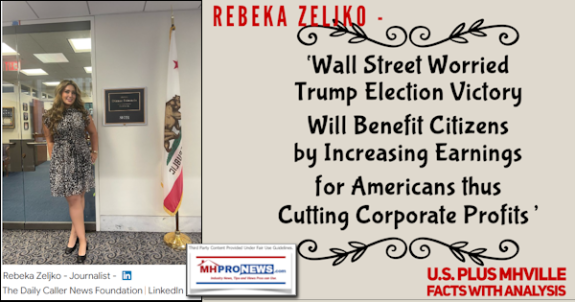One of the advantages of publishing an electronic trade journal like www.MHMSM.com (aka www.MHProNews.com) is that over time, you built a list of experts as go-to resources on key topics. Some experts are writing columns for us monthly or periodically. Some you can see on my LinkedIn profile, but other experts and professionals are entirely invisible, behind the scenes.
All of these expert resources, seen and unseen, bring value to you, our Industry readers. You – our readers and experts – bring value to us, too. This is a symbiotic relationship that has considerable power and benefits all involved.
When you see a blog post or a news article on a topic such as Dodd-Frank Reality Check: What is its true impact on Manufactured Housing, I can go to a variety of resources for input. Once published, readers and other experts will ask questions or share comments that can make for interesting ongoing dialogue and further our mutual understanding. That in turn extends the benefits to readers and industry professionals.
Some examples of questions or comments from readers and experts will help make the point:
Question:
Will Dodd-Frank impact all manufactured housing loans?
Answer.
Not directly. Dodd-Frank (DF) has certain triggers that will cause its regulations to apply. Those triggers include:
- high cost loans,
- high risk loans and
- so-called exotic loans.
Question:
What if my chattel (personal property) lender does loans that not do have any of these triggers under Dodd-Frank? Is there still an impact on their lending?
Answer:
Yes. There are compliance costs to Dodd-Frank, as would also be true with the SAFE Act. There are indirect impacts such as access to capital and higher capital costs. Your lender may need to hit certain loan volume numbers in order to be profitable.
These are just some of the indirect impacts, even if your lender has no DF triggers.
One lender has told me privately that it is almost as if lenders are being treated by regulators today as an enemy. The word is that it is getting harder and harder to make a profit.
Without profit, capital flees to where it will get a better return.
I’ll bet if I asked that question privately – are lenders being treated like an enemy by some regulations? – I’d not be surprised if many if not all in manufactured housing industry personal property lending would answer that with a resounding ‘yes.’
What is ironic is that the very regulations designed to protect consumers are going to cost consumers access to financing they had prior to such laws as Dodd-Frank or the SAFE Act.
In a number of cases, retailers and community operators would make loans to customers, perhaps through a captive finance (sister company, like GMAC is to GM) operation. But if the cost of doing business or the risk of heavy fines becomes too great, then those lenders and their loans will tend to disappear.
Even a manufactured homeowner with good credit will be impacted by Dodd-Frank. Consider this example.
Picture an MH owner that had A credit, and wanted to sell. What if they had a buyer with sufficient down payment, but the buyer had a 600 credit score? Under Dodd-Frank if not amended, that sale will not likely happen.
Who loses in the scenario above?
Arguably, everyone. The current home owner can’t sell. The would-be buyer can’t purchase. The lender who would make the loan can’t do the deal. Even an MHC owner indirectly suffers, as frustration grows when a resident wants to sell and can’t.
We must look at this issue from all perspectives, including the consumer’s viewpoint.
Yes, we can argue that Dodd-Frank will hurt our business and it will hurt home owners.
But what brought about the laws in the first place? Why did lawmakers pass these laws? Didn’t they have good intentions?
Let me share some thoughts that have come my way from multiple sources.
SAFE and DF were in born in part from the stated goal for ‘consumer protection.’ If MH professionals (and others who do lending) were not seen by some as ‘the enemy,’ if we were seen instead as a friend to consumers, would modifying Dodd-Frank be as difficult?
Would Dodd-Frank even exist?
The power of manufactured housing lies largely untapped today.
Manufactured homes can serve mid to upscale residential style customers. We are also uniquely able to serve a housing price point no other type of permanent housing construction can achieve. We are greener, safer, more energy efficient than similar sized conventional construction. It has been proven time and again.
We can make a great case for a properly run land-lease community too. Prospective home owners opt-in to a lifestyle that improves the quality of their life at a reduced cost of living. One can make the case that a well run land-lease (MHC) community saves tax payers dollars.
So why do we have an image issue?
In some cases, unhappy residents. In other cases, the endless repetition by the mainstream media of old, outdated facts or outright myths.
This is why an image/PR/marketing campaign is so important. In every puzzle, one piece is as important as the others.
We talk about associations existing to protect and promote manufactured housing. We need to be as involved in promotion as we are in protection!
As some have commented, we do not need to wait for an industry-wide image campaign, as nice as that might be.
Your business can do its own image campaign, as we have done for clients from border to border for many years. These image/marketing/PR efforts can be low cost, and high impact when properly conceived and executed. Done right, they are profitable and result in happy home owners.
The kind of home owners you could count on to contact a legislator when you need them.
One reason we have so many regulatory issues is that MH consumers are often not our ‘Raving Fans.’ They can be! They should be!
We have the power to align our business interests with that of our customers. We can reduce or erase existing tension where it exists. This is not theory; this is experience talking, mine or that of others.
When we have happy customers or residents, we have referrals. That is the best kind of marketing you can get.
I often use the example of Apple to make the point. I love my iPhone. I am drafting this blog on my iPad. Millions love Apple products, from iPods to Macs and more. Why can’t we get the same type of enthusiasm for our homes and communities as Apple gets for its products?
The answer is, we can. We have personally seen ‘angry’ residents turn into allies and promoters, if, If, IF they are properly respected and dealt with professionally!
Do not over promise.
Do not under deliver.
Do what you say you will do. You do not have to do more, but do not do less.
Taking care of the customer, having happy customers – that is the first rule of good business.
If you need a hand at creating happy customers or more business, ask an expert. We have plenty writing on our pages. If you do not know who to call, please call me – perhaps I can point you in the right direction.
We are all in this together.
One thing is certain. As we said in the last blog post, the clock is ticking. We need to act as rapidly as possible. Speaking for myself, I’m planning on meetings in tandem with other industry pros with legislators on key committees.
How about you? Please share your action plan. You can share it publicly by posting on our comments, or privately by emailing me at tony@mhmsm.com. Thanks for being part of the solution! # #

